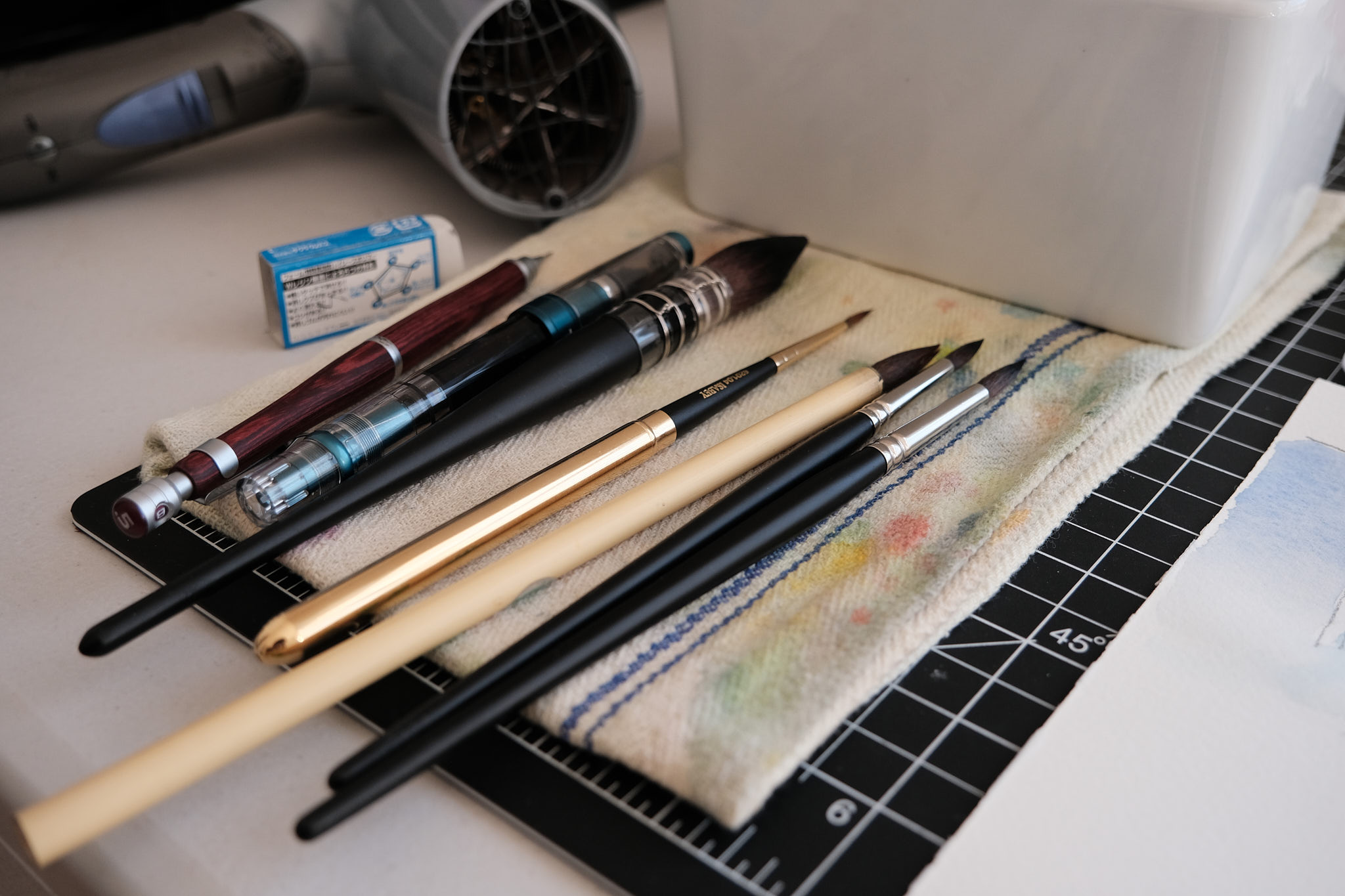Placements
# A study of biology
As an exploration in the space between figure and illustration, art and biology, and line and form, I drafted a series of illustrated pieces blending fantastical elements with traditional landscapes in my own unique rendering. After spending a semester learning about biology in The Intersection of Biology, Art, and Technology, I became enamored by the varied layers of abstraction present in how biology is presented to students. There is a fine art in taking a micrograph (a picture by means of a microscope) and translating it into an intuitive figure. An overly abstract translation may result in confusion, but an abruptly specific one means details get lost in the noise. This work examines that tension in relation to scale and color.
This site interleaves illustrations with contextualization and writings on the drafting process and what tools I utilized along the way. Look around, get comfortable!
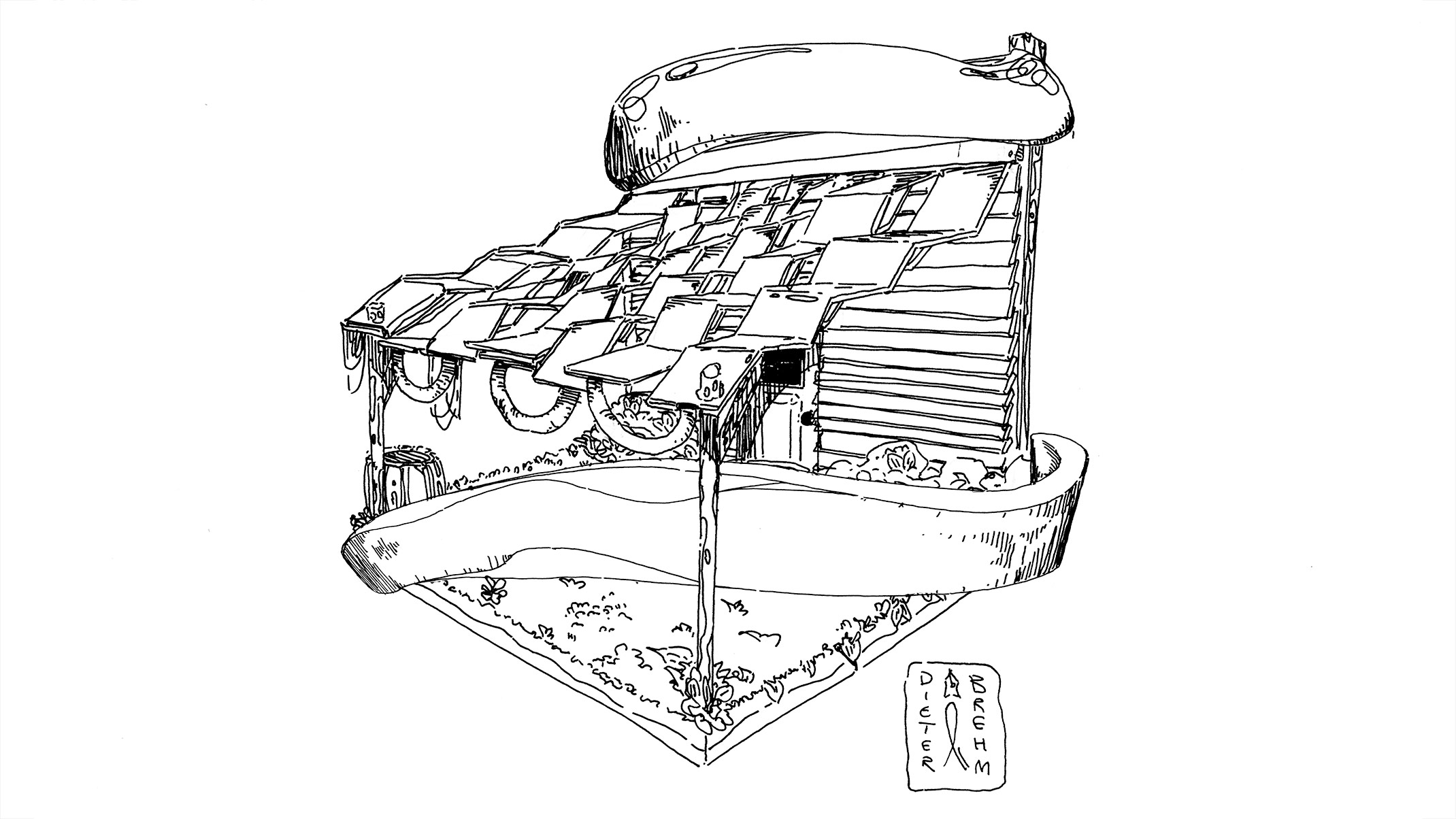
Pleats and Helices - 2021 - Dieter Brehm - link
Protein Motifs
Alpha helix and beta pleated sheets are motifs that define the fundamental shapes of proteins. Similarly, common architectural elements serve as the glue of buildings across the world.
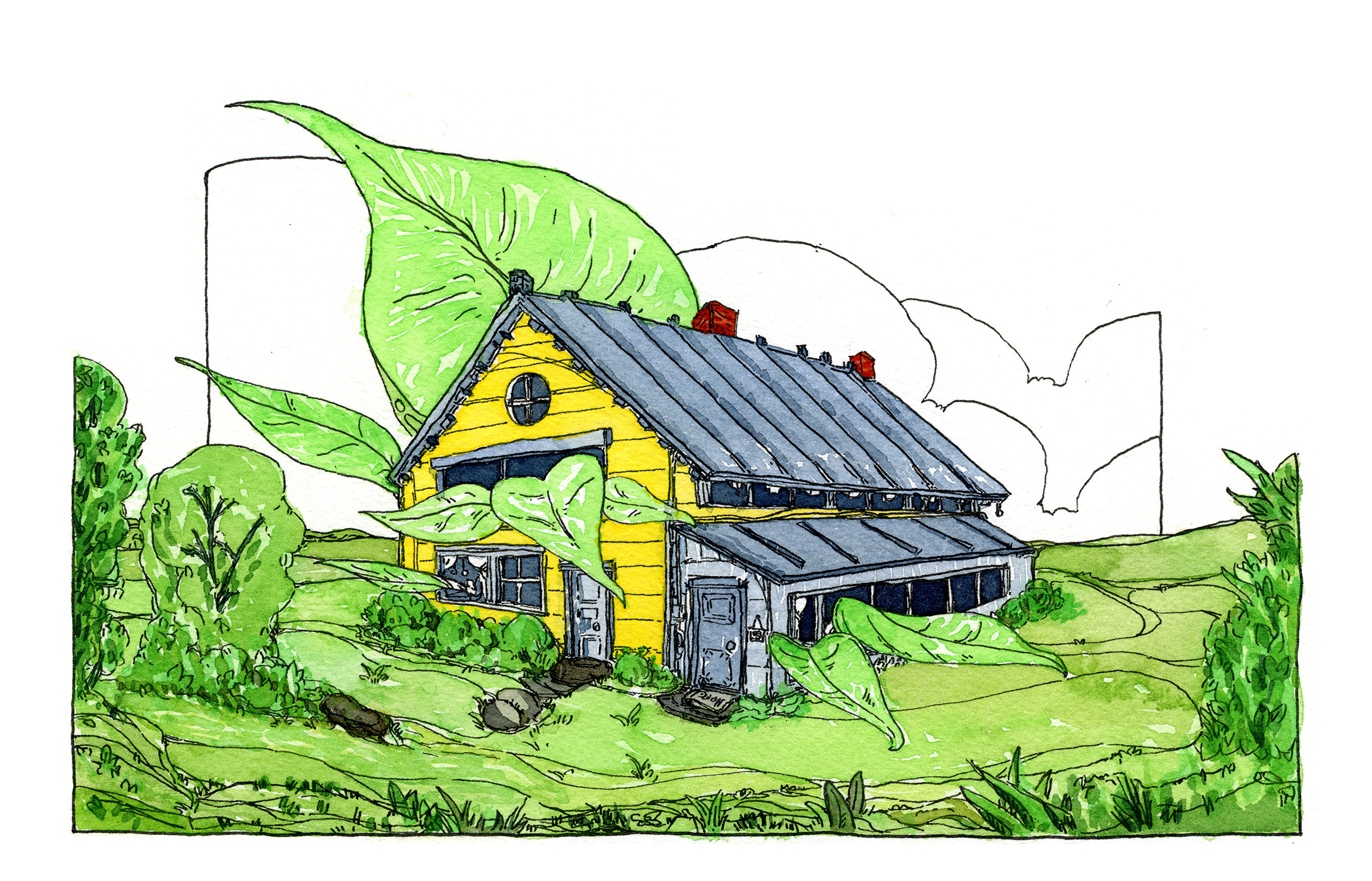
Plant Life - 2021 - Dieter Brehm - link
Plant Life
Plants are everywhere, including our homes. They, for better or worse, are exploited constantly for their properties and visual appeal. What if the plants that decorate our built environment played a more outsized role-One that is proportional to their importance in the Earth?
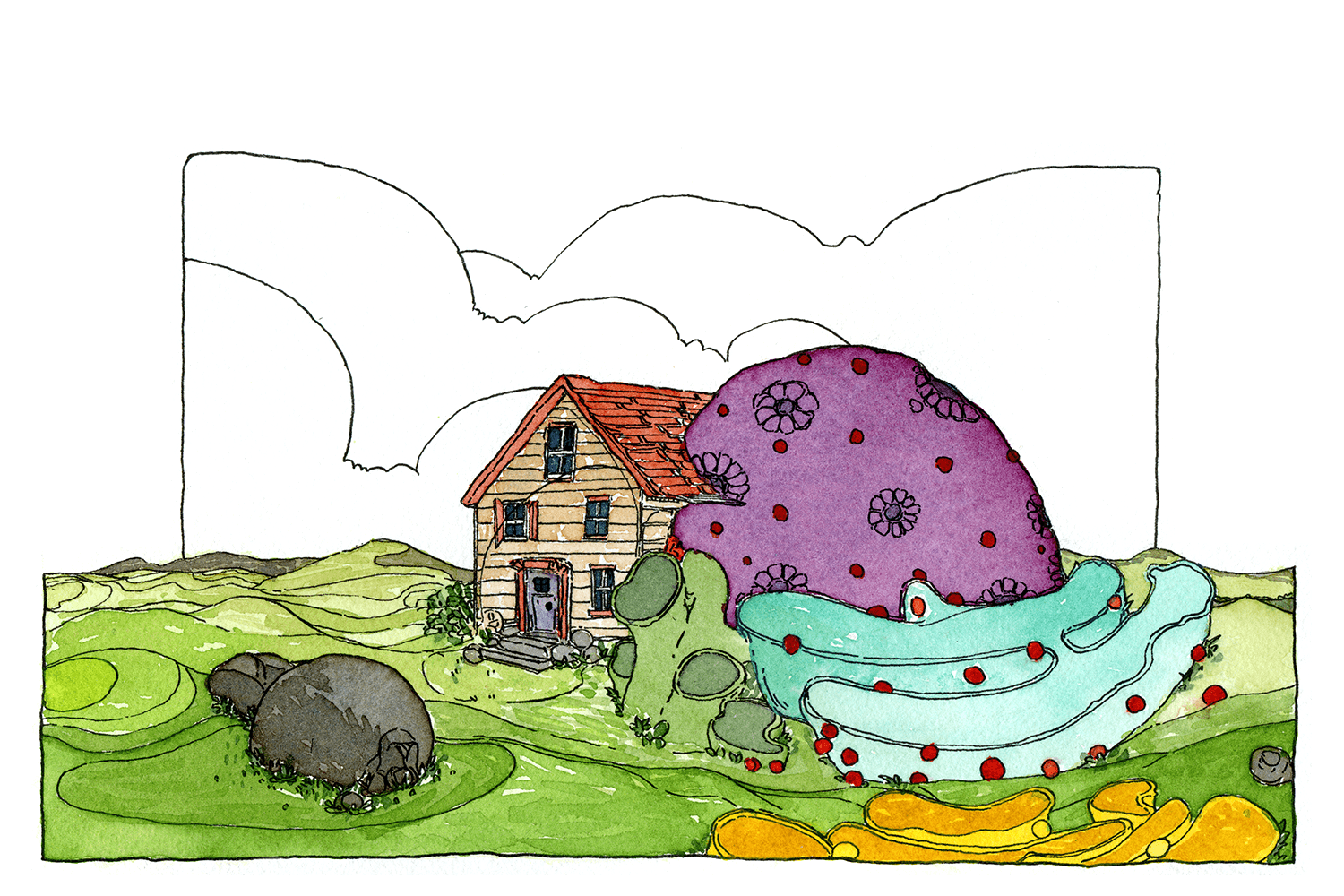
Placements - 2021 - Dieter Brehm - link
Cell Structure
Exploring scale, absurdity, and the levels of abstraction found in biology textbooks through juxtaposing cell elements and rural environments.
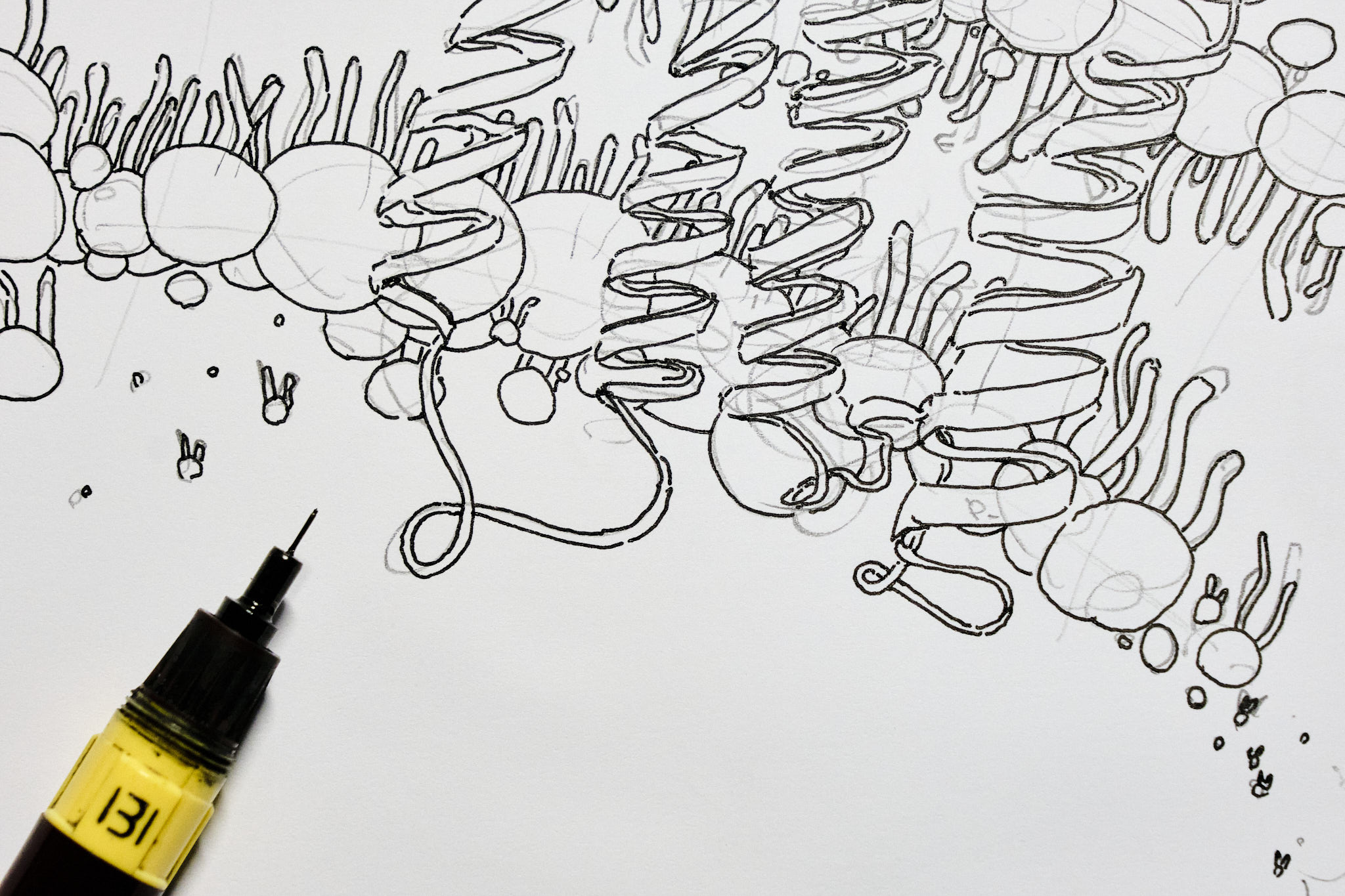
Phospholipid bilayers - 2021 - Dieter Brehm - link
Lipid Bilayers
Look into the world of bilayers, and how cells manage to keep it all together. I'm transfixed by the layers of abstraction and detail present in these systems.

Studio - 2021 - Dieter Brehm - link
The Process
This series of illustration spans several traditional and digital mediums. It is just as much about the subject matter as the journey it took to get to finished pieces. Take a look at how it came together.
Looking for more biologically-minded art? Take a look at Climate Art Survey. The source for textbook figures and biological information is:
Mason, Kenneth A, Jonathan B. Losos, Tod Duncan, Peter H. Raven, and George B. Johnson. Biology. , 2020. Print.
